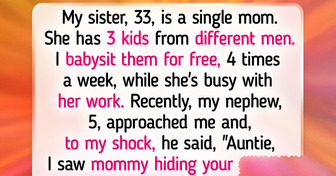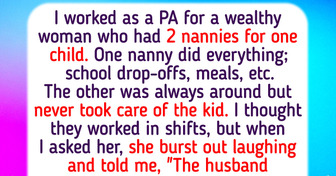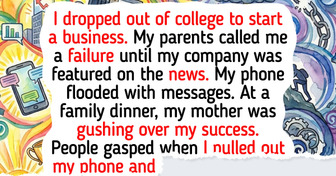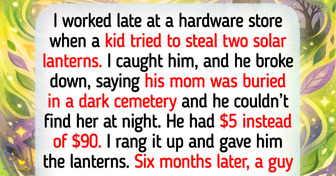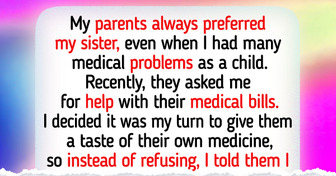15 True Stories That Get Creepier the More You Dig In

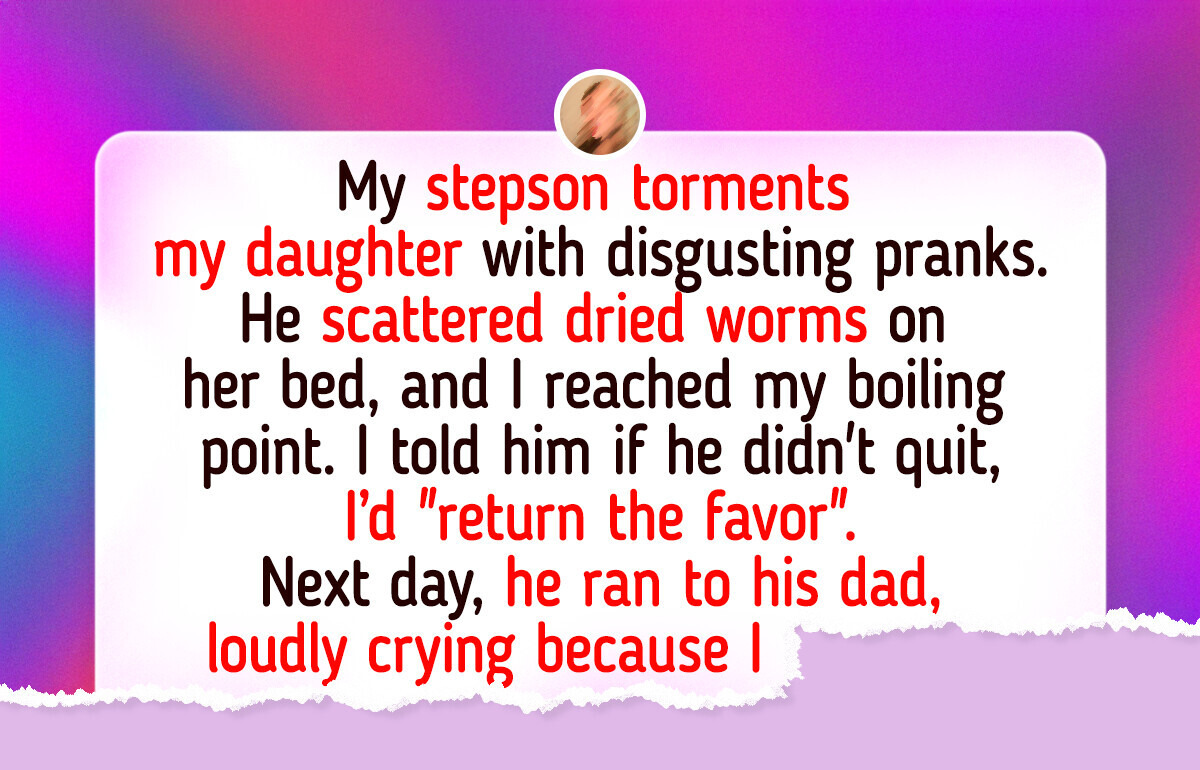
Parenting in blended families often means walking a tightrope between fairness, discipline, and emotional survival. But what happens when the balance tips too far, and you're forced to choose your child's mental health over the peace in your house? This is the heart-wrenching dilemma I’m facing.
Hi Bright Side!
It didn’t start with yelling. Or fighting. Or punishments. It started with little things. Things my 13-year-old daughter would never even complain about until I noticed the shift in her mood.
Her anxiety at bedtime. Her hesitation to go into her own closet. At first, I thought she was just adjusting to our new home and her new stepbrother, 16. But then the pranks started.
And they weren’t harmless.
But I kept trying to take the high road. I told myself, he’s just a teenager testing boundaries. I asked my husband to talk to his son, and while he made an effort, nothing changed.
One morning, I opened the closet door and was hit with the unmistakable stench of something rotten. I threw it out.
But later I found out he had snuck the same old fish meal into his stepsister's closet. I reminded him that I had promised I would do something equally gross if he didn't stop tormenting my daughter.
Despite my warning, he didn't stop. My stepson still regularly torments my daughter with disgusting pranks. He scattered dried worms on her bed, and I reached my boiling point.
I told him if he didn't quit, I’d "return the favor." He just smirked and said, "Bring it on."
For my daughter's sake, I took action. The next day, he ran to his dad, loudly crying because I put food coloring in his shampoo bottle. Did I overstep? Possibly. But I felt like it was the only thing that finally got through to him.
That’s when my husband stepped in and said I was overreacting. He argued that my idea for a punishment was too harsh, and I'm the adult, so I should "act accordingly" instead of "playing immature games of revenge." We got into a heated argument because I feel like my stepson has to learn that there are real consequences for his actions.
I did what I did for the sake of my daughter. Was I wrong? I also talked to my sister about it. She thinks my stepson has to realize what it’s like to be on the receiving end. She told me, "You have to follow through on your promise to protect your daughter, or he’ll never take you seriously."
Now I’m stuck in a terrible dilemma. My husband wants me to apologize to his son, but my sister insists I should stand firm so that he understands he can’t keep doing this.
I love my family, and I don’t want to push my stepson away, but at the same time, I’m afraid that if I apologize, he’ll think I’m not serious about protecting my daughter or keeping my word. I have no idea what I’m going to do, and it’s tearing me apart.
Thank you so much for sharing your story with us. First, let us say this: you are not wrong for wanting to protect your daughter. You’re not vindictive, and you’re not overreacting just because you decided to stop tolerating someone else's mistreatment of your child. You’ve been trying to parent with compassion and patience in a blended household—that’s no small task. Here’s what you can do:
Bring the Focus Back to Your Daughter’s Safety and Emotional Health: Your daughter is showing signs of anxiety, discomfort, and distress in her own home. That’s not just a parenting issue—it’s a safety issue. Reframe the conversation with your husband around this: it’s not about “revenge,” it’s about your daughter’s right to feel secure in her own space. Make that the center of every discussion from now on.
Have a Direct but Non-Combative Talk With Your Stepson (and Include His Father): Retaliation might have made a temporary impact, but now’s the time to model firm, healthy boundaries. Sit down with both your husband and stepson. Say something like: "I need this house to be safe for everyone. If someone feels scared, anxious, or disrespected, that has to stop—no exceptions."
Lay out clear consequences that don’t involve pranks, but do involve real accountability. And make sure your husband is on the same page this time.
Ask for Family Counseling—Even If You Have to Initiate It Alone: Blended families face unique challenges, and this isn’t just about a few pranks. There’s a deeper lack of mutual respect and communication that won’t fix itself. A neutral third party can help everyone speak and be heard, especially your daughter, who deserves that outlet more than anyone.
Give Yourself Grace, but Step Out of the Power Struggle: You reached your limit, and that’s okay. You’re human. But now that you’ve drawn the line, it’s time to step back from the tit-for-tat dynamic.
Focus on long-term structure and calm authority. That doesn’t mean being passive—it means being the steady one when everyone else is still learning what accountability looks like.
You’re not alone in this. Many parents in blended families feel pushed to the edge trying to advocate for their children while keeping the peace. The fact that you acted when your daughter was hurting already shows where your heart is. Don’t let anyone, especially someone not doing the emotional labor, make you feel ashamed of that.
Recently, one of our readers wrote to us explaining why they refuse to treat their pregnant co-worker like "Royalty". Read about it here.

